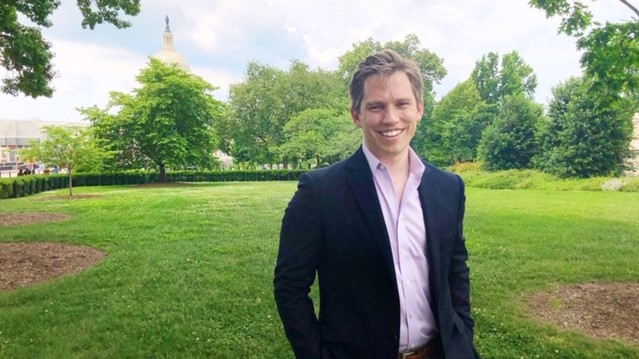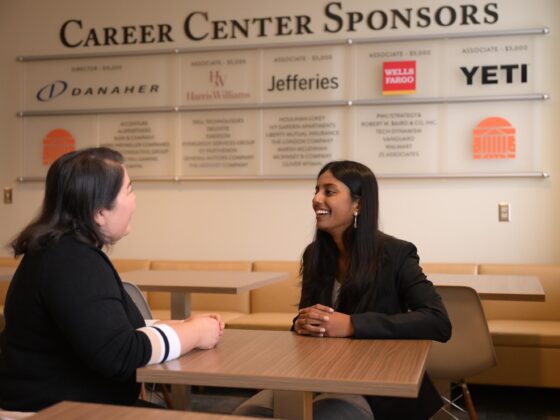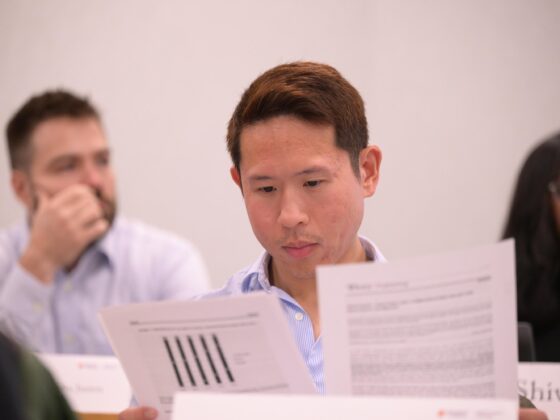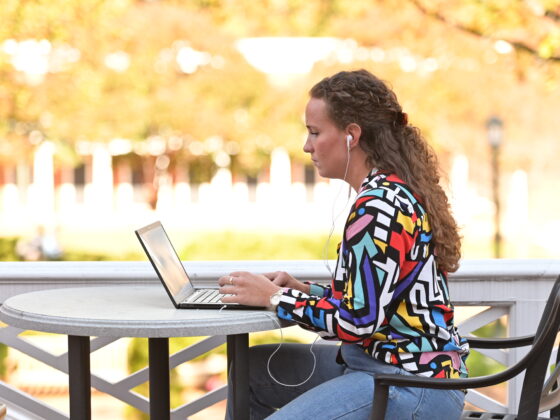Mathew Freeman (EMBA ’19) is originally from Sydney, Australia, but moved to the United States in 2009 and lives in Washington, D.C., with his wife, Mary Beth. The newly minted graduate of the Executive MBA program says you can usually find him “helping folks manage their money” as a financial adviser at Morgan Stanley. He also races in triathlons on weekends, plays squash and longs to live closer to “a decent beach break.” Find out why this new graduate chose Darden and what he learned during the 21-month journey that concluded in May.
Why did you choose Darden?
I chose Darden because of what’s in its classrooms. The professors are routinely rated as some of the best in the country, the case method is both academically stimulating and immediately relevant to my work, and the cohort is diverse and energetic. I observed those three iconic Darden strengths when I sat in on an ethics class taught by Professor Andy Wicks during my decision-making process. If you are considering Darden, do not make a choice until you have experienced a class.
My decision to come to Darden was helped by the School’s ranking, and that the global business community knows and respects the name.
What was the most surprising thing about your experience?
Honestly, I’m surprised how fast it’s gone by. It feels like we’ve just gotten started and here we are at the end. The best way to describe the experiences is: long days, short months.
I have also been surprised by how applicable the skills have been to my job. In cynical moments, I have thought about the program as merely an initiation of sorts necessary for moving on to the next stage of my career, and then I find myself applying skills and frameworks from cases in my daily job.
Finally, I have been surprised at the quality of the classroom experience. I literally chose the School because of the case method and the quality of the teaching. Those expectations have genuinely been exceeded.
What were some highlights from your time at Darden?
I’m not sure how to accurately capture the experience of taking “Financial Institutions and Markets” with Professor Yiorgos Allayannis. I have never experienced anything like it. The man brings the topic of banking and payments to life in an exciting an engaging way. Go find someone who has taken a class of his and see if they can describe it without smiling. I’ll wait.
I chose the Europe residency for my global elective. During that trip, a portion of my cohort visited Otis Elevator Company in Paris. It was a highlight because the company leadership shared a live case with us, let us speak on their decision-making, and — without knowing it — validated many of the skills and techniques we had been taught just a quarter ago.
Finally, though there are many more highlights, I can think of a handful of dinners with classmates where I felt genuine joy in the conversation and comradery — hearing their stories, being inspired by their triumphs and challenges, engaging their ideas, and being shaped by good faith debates. The Executive MBA Class of 2019 is the best cohort the School has ever seen, though I’m biased.
What will you miss about Darden?
The people, the perspectives and the privilege. My class and I have had a unique opportunity to broaden our network, sharpen our skills and have our assumptions challenged. It’s not lost on me that the opportunities for such experiences are scarce.
Any advice for prospective students considering Darden’s executive formats?
Define your why, and hold it loosely. Cultivate a growth mindset and seek out challenges. If you choose Darden, come ready to work. Plan to manage your energy, not your time, and maintain an aggressive “forward lean.”
Good luck.





